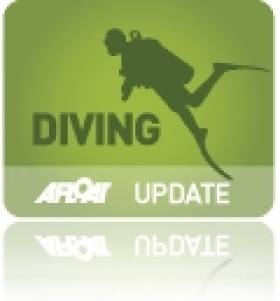Displaying items by tag: Mission Blue
The Ocean Race Partners With Environmental NGO to Inspire Ocean Protection
The Ocean Race and Mission Blue, an NGO dedicated to exploring the ocean and driving its protection, are coming together to accelerate action to safeguard the seas.
At the heart of the new collaboration, they say, are two ambitious goals for a healthy ocean: establishing a Universal Declaration of Ocean Rights and protecting 30% of the ocean by 2030.
Through its Racing with Purpose programme, established in collaboration with Founding Partner 11th Hour Racing, The Ocean Race says it has been working for over 18 months to build support with decision-makers and governments across the world for a Universal Declaration of Ocean Rights, which would establish the ocean as a legal entity and put in place a global framework for protecting the seas.
The race is also encouraging the public to get onboard through the One Blue Voice campaign, with a petition for a declaration that will be presented to the United Nations General Assembly in September 2023.
As an ‘Impact Collaborator’ of The Ocean Race, Mission Blue says it will help to drive support for ocean rights and highlight how this could play a crucial role in protecting the seas.
The collaboration also aims to shine a spotlight on ‘Hope Spots’, vital parts of the ocean that have been scientifically identified as critical to the health of the marine environment.
Working with local communities to safeguard these special areas, Mission Blue says it is calling on leaders and policymakers to ensure they are properly protected and able to thrive.
Ahead of the start of The Ocean Race 2022-23, which sets sail from Alicante, Spain on 15 January, the collaborators will look at ways to champion the Hope Spots that the teams will be racing by along the 60,000km route.
Richard Brisius, race chairman at The Ocean Race said: “Less than 3% of the ocean is protected, which has led to our blue planet being ruthlessly exploited. Working with organisations that are also racing to protect the ocean is the best way of making waves and driving action.
“By uniting with Mission Blue we can help audiences discover the incredible world beneath the surface and give the ocean a stronger voice, which will ultimately help to safeguard it.”
Led by legendary oceanographer Dr Sylvia Earle, Mission Blue’s work to raise awareness and grow support for a worldwide network of marine protected areas encompassing 30% of the ocean by 2030 will be amplified by The Ocean Race through its Racing with Purpose sustainability programme.
Created in collaboration with 11th Hour Racing, the programme features a series of high-level summits, learning programmes to inspire children to protect the ocean and an onboard science programme in which valuable data about the state of the seas is collected by sailing teams as they race across the planet.
Deb Castellana, director of strategic alliances at Mission Blue said: “Witnessing the development of The Ocean Race over the past decades, it is inspiring to see how what was once purely a challenge of human determination and the latest sailing technologies has evolved into a program centred on making a real difference for our imperilled ocean.
“The message to support ocean health is absolutely integral to the race, and it will be impossible for anyone following to escape this critical and timely message. From youth programmes to global summits, to presenting the Universal Declaration of Ocean Rights at the United Nations, The Ocean Race will make its mark as not only a sailing race, but a race to save our ocean planet. Mission Blue is proud to partner with The Ocean Race. No Blue, No Green!”
Stunning Shots Off Hook Peninsula Will Convince You To 'Try A Dive'
#Diving - As the Irish Underwater Council's 'Try A Dive' campaign approaches this weekend, Ivan Donoghue's photography of the sights beneath the waves off the Hook Peninsula might well be the hook you need to take the plunge.
Independent.ie has a gallery of the Wexford diving enthusiast's shots that reveal the diversity of marine wildlife and plantlife that are abundant around Ireland's coasts.
It's this biodiversity that needs protecting worldwide – that's the message behind Mission Blue, a new documentary on the work of marine biologist and longtime diving veteran Dr Sylvia Earle.
The 79-year-old, named Time Magazine's 'Hero for the Planet' in 1998, made her first dive 60 years ago, and since then has engaged in thousands more, including leading 100 research missions to study the ocean and its importance to life for all on earth.
As the Irish Examiner reports, she hopes her film – which is available to stream on Netflix – will "ignite public support" for her mission to protect the world's oceans.
























































